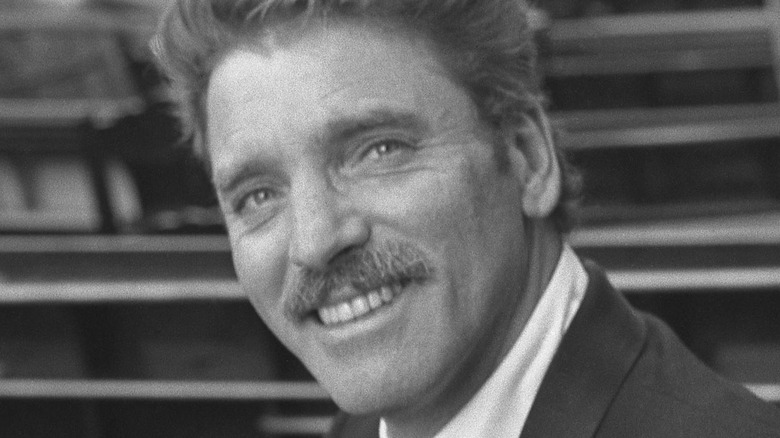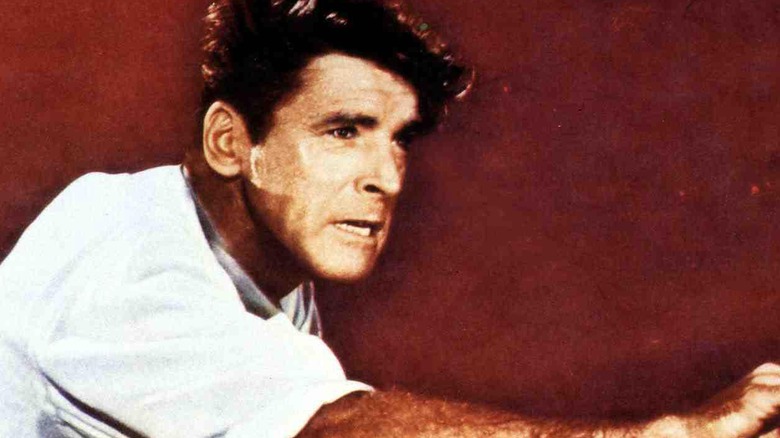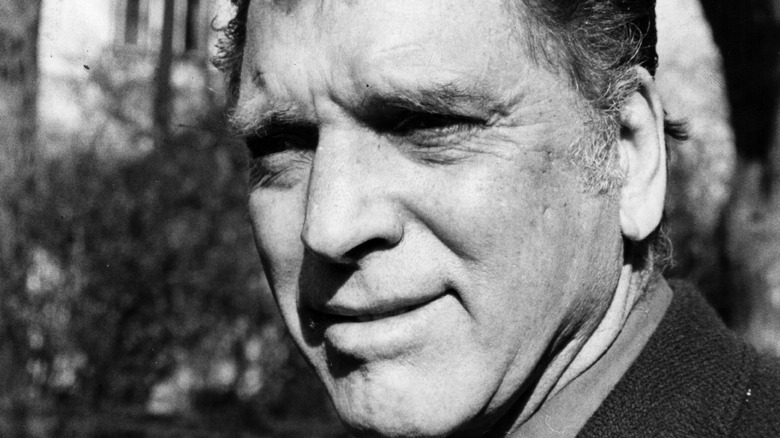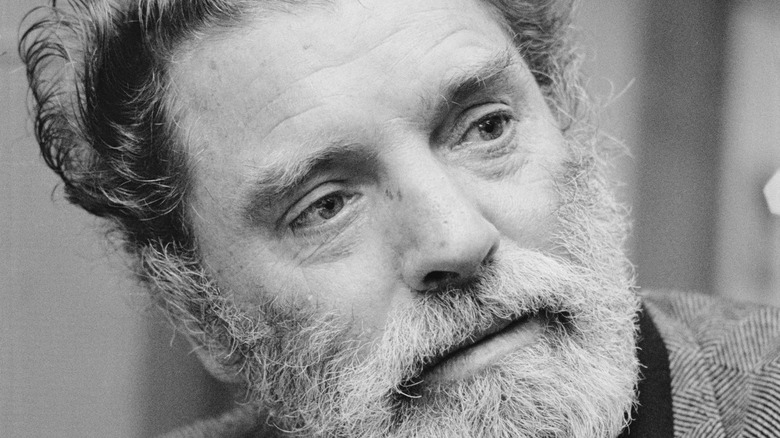How Burt Lancaster Changed His Appearance For Hollywood
Actor Burt Lancaster was famous for his physical presence. Early in his career, he was known for his athletic prowess and tough guy persona. Born in New York in 1913, he got his showbiz start as an acrobat, according to The New York Times. However, a finger injury ended his circus career in 1939, and he worked in retail until he was drafted in 1942. His first movie role was in 1946's "The Killers," based on an Ernest Hemingway short story, which led to a string of roles in which he played similarly rugged, macho characters.
Lancaster even performed his own stunts in films like 1950's "The Flame and the Arrow." "I've got a couple of thousand bucks in this picture," Lancaster said when asked why he took the risk. "What's a neck?" Other early roles that highlighted his physical skills included the titular Olympic athlete in 1951's "Jim Thorpe: All-American" and a circus performer in 1956's "Trapeze." Film critic Pauline Kael described him in a New Yorker review as a "beautiful blank" at the start of his career (via Turner Classic Movies). "Acting with his whole body, he was buoyantly beautiful, and his grin — with those great white Chiclets flashing — could make you grin back at the screen," she recalled. Lancaster himself referred to his smile as "The Grin," according to Salon.
More than a pretty face
However, Burt Lancaster went out of his way to prove that he was more than just a well-toned body with a pretty face. He balanced his action roles with artistic risks, such as playing an alcoholic in 1952's "Come Back, Little Sheba," and a gossip columnist in 1957's "Sweet Smell of Success," according to The New York Times. He was able to do this because he produced many of his own films with his agent Harold Hecht, according to Salon. Their production company was the most successful independent company that distributed through United Artists in the 1950s and early 1960s.
Lancaster saw his Hollywood image as "one big commodity" and intentionally chose roles for himself that allowed him to expand his range. Because of these risks, he self-deprecatingly said he "came up with egg, even a whole omelette, on my face," according to The New York Times. However, the risks payed off when he won an Academy Award for playing a conman in 1960's "Elmer Gantry."
The Italian job
It was on the set of one of his more artistic roles that Burt Lancaster revealed a secret about his famous appearance: Much of it had been altered over time. The confession came while he was filming the 1976 movie "1900," as Kate Buford recounted in her biography "Burt Lancaster: An American Life." "1900" was a period drama from director Bernardo Bertolucci that focused on political and social change in Italy in the 20th century. In the film, Lancaster played Alfredo Berlinghieri, a landowner who faces a peasant rebellion. Buford said the role served as a transition for Burton between middle and old age.
Perhaps feeling reflective, Lancaster told Bertolucci the truth of his appearance while filming: he'd had extensive work done on his body, teeth, and face. Lancaster said some of these alterations were cosmetic in nature, while some were scars from injuries or operations. The end result, though, was that "the most real thing on my face is my eyes," Lancaster said.
Facelift faceoff
There is further evidence that Burt Lancaster had extensive plastic surgery. Beverly Hills plastic surgeon Dr. Richard Fleming told ABC News that Lancaster had a facelift, and that "Without cosmetic surgery, gravity always wins." While Lancaster's cosmetic changes likely helped, or at least didn't hurt, his career, this is not always the case for actors who alter their appearance. In fact, Lancaster himself indirectly benefited from such an incident. Actor Robert Mitchum was up for a role in the 1980 film "Atlantic City," according to Jezebel. However, he was rejected for the part after he had a facelift.
Mitchum's loss was Lancaster's gain. Lancaster was eventually cast in the Louis Malle film, according to History. He played an aging gangster and earned his fourth Academy Award nomination for Best Actor for his efforts. Lancaster went on to play memorable roles in 1983's "Local Hero" and 1989's "Field of Dreams" before dying of a heart attack in 1994 at the age of 80. However he'd changed his face, his eyes had seen him through a long and varied career.



